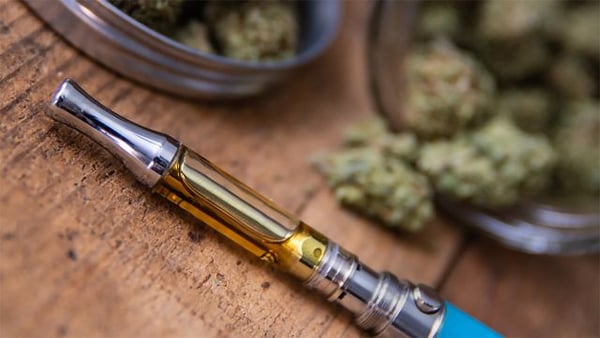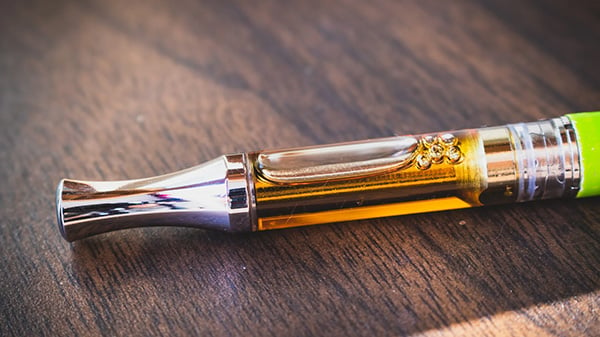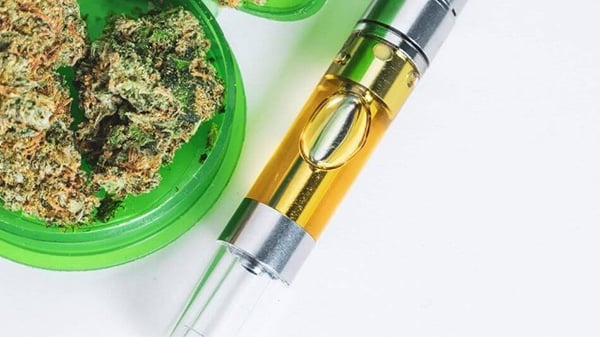Are some vape cartridges contaminated with heavy metals and lead?

Are some vape cartridges contaminated with heavy metals and lead?

In the fall of 2021, the Pennsylvania Department of Health announced a comprehensive review of all vape carts and disposable vape pens in the state. Then on Feb. 4 of this year, when their review was complete, the DOH issued a full recall stating that "some of the added ingredients have not been approved by the U.S. Food and Drug Administration (FDA) for inhalation."
The list of recalled products is 18 pages long, leaving consumers wondering what they're smoking and when they can trust retailers again. Thankfully, this is the first recall in the six-year history of Pennsylvania's medical marijuana program, but it's not the first time health regulators have had to penalize a processor for ignoring toxicity standards.
Once again, consumers have to ask: Do all vapes contain metals? This article reviews the latest data on heavy metals (sources of contaminants) in vapes and provides tips for avoiding toxic vape cartridges.
Where does metal pollution come from?

There are two main sources of metal contamination in cannabis: the soil in which it is grown and the equipment that consumes it. The ability to absorb heavy metals from the surrounding soil is called phytoremediation. Cannabis isn't the only plant that can do this, but it does it well. In fact, some believe that industrial hemp may be used to clean up contaminated soil in the future. Ideally, cannabis would be used to make textiles and fabrics that would not be consumed. When this cannabis is consumed, the metals extracted from the soil are passed on to the consumer.
A second source of metal contamination is devices used to smoke cannabis, especially vape cartridges. Regardless of brand or model, all vape cartridges have three basic components: a mouthpiece, an oil-filled chamber, and a heating element called an atomizer. The atomizer heats the oil until it evaporates, and then the vapor is drawn through a mouthpiece. This atomizer or heating element is considered the potential source of metal contamination.
In 2021, researchers at Medicine Creek Analytics in Fife, Washington, tested aerosols produced by a dozen randomly selected cartridges purchased from local retailers. Their results showed that "chromium, copper, nickel, and small amounts of lead, manganese, and tin migrate to cannabis oil and inhaled vapor." They concluded that "the heating device itself is the source of metal contamination" and urged cannabis labs to test the oil and the resulting vapor for a wider range of metals (rather than just testing before the oil is heated).
Why do Vape cartridges contain lead?

States with legal marijuana markets require vape packs to be tested for unacceptable levels of metal contamination - particularly arsenic, cadmium, mercury and lead. But even in states with legal marketplaces, there is no standardization. For example, Washington State allows up to 1.2 micrograms of lead per gram (ug/g) in marijuana products, while Michigan allows 2 ug/g. Oregon has no maximum limit at all.
States were actually forced to allow small amounts of lead because it was so cost-effective for the companies that used it. Lead is often tempered into other metals to make it cheaper and more flexible, especially in electronics, where small wires or pieces of metal are bent and shaped into narrow spaces. But it's also a huge cost-cutting measure, saving a few cents per unit and millions of dollars a year. But to be clear, no amount of lead is truly safe, and the CDC makes it clear that "a safe blood lead level has not been established."
Other risks associated with vapes and vape trolleys
In February 2022, Pennsylvania health officials released their 18-page list of recalled vape products, and they also released a 5-page list of additives that were not FDA-approved for inhalation and were found in these hundreds of products. In addition to the harmful metals immersed in the concentrate, some concentrates have been added with additional terpenes, emulsifiers, and preservatives that are otherwise harmless but become toxic when vaporized and inhaled.
For example, ethyl hexanoate has a fruity aroma and is approved for digestion, but it is also flammable as a liquid and vapor and is not approved for inhalation. Similarly, benzyl bromoacetate is approved for ingestion but is also a known respiratory irritant. Both chemicals were found in vape cartridges in Pennsylvania.
Perhaps more infamously, a mysterious illness linked to vapes emerged in 2019 and led to at least 60 deaths. E-Cig Vaping Associated Lung Injury (EVALI) was ultimately associated with vitamin E acetate in black or gray market vape cartridges. Thankfully, states where the regulated cannabis market tests for vitamin E acetate and licensed processors do not specifically use it because of its health risks. As long as you buy legal vape cartridges from an authorized retailer, EVALI is not a problem.
How to avoid possible metal contamination
Consumers can avoid metal contamination in the first place by only purchasing vape cartridges from authorized retailers. Cheap or counterfeit vape cartridges often contain more lead, and the oil itself is almost certainly not tested before filling these cartridges, so the oil may also contain harmful metals or additives. Licensed retailers, on the other hand, must submit products for testing in accordance with national health regulations in order to retain their licenses. While these regulations are not perfect and should be improved, they can at least prevent the worst kinds of mixing. Don't buy cheap disposable vape cartridges online from unknown sources. Instead, buy from your local registered and licensed dispensary.
Consumers may also consider switching to a dry herb vape. They are generally bulkier than vape pens, but cannabis is a more natural product with less chance of having additives or preservatives added. Many dried herb carburetors also use metal-free ceramic heating elements. You could also smoke from glass water pipes such as bongs or dab rigs.
FAQ
Do vape cartridges have lead?
Sure. Many metals are actually tempered with lead, but many of these metals do not interact with human consumption. However, lead used in vape cartridges - particularly in the heating elements - has been observed to leach into cannabis oil and vapor.
Can vaping cause heavy metal poisoning?
Yes, although it's rare. In 2019, a woman was diagnosed with a lung disease usually reserved for metal workers. When doctors tested the vape she had been using, they found large amounts of lead, cobalt, and aluminum.
More common than the official diagnosis of "metal poisoning" is simply long-term irritation of respiratory tissue.
What metals are in vape cartridges?
Tests on vape cartridges found lead, chromium, cobalt, aluminum, nickel, and magnesium.
What chemicals do cartridges contain?
The answer varies by brand and specific product, but in general, vape cartridges are filled with a mixture of terpenes, cannabinoids, thinners, emulsifiers, and preservatives.





